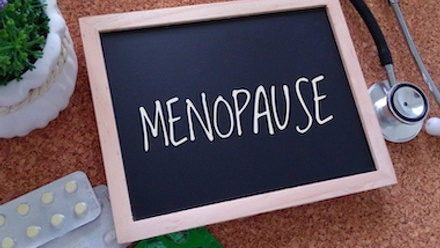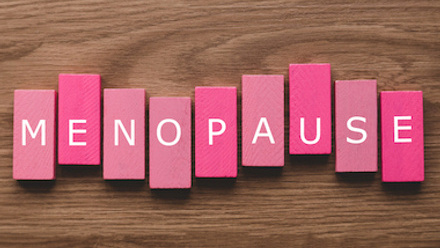7 simple ways to help people through the menopause

The All-Party Parliamentary Group on Menopause now exists to tackle menopause issues, recently succeeding in reducing the costs of annual HRT prescription charges and improving access to HRT. And organisations are beginning to support their workforce through menopause in the workplace.
When it comes to information about menopause, quantity is not an issue – but quality can be. “Of course, you can search on the internet and get broad information. If you're lucky, some of it might be quite accurate,” says Peppy’s director of menopause, Kathy Abernethy, “but it's very difficult to apply that to yourself.”
Here are seven ways you can support people through menopause – as a friend, partner, family member, colleague or manager.
1. Take it seriously
Thankfully, the days when jokes about the menopause were acceptable are history. Or at least they should be.
“Colleagues and family members need to avoid the constant references to hot flushes and ‘senior moments’ that can make women feel self-conscious and may add to their stress and anxiety,” says Kathy. “It’s not an illness, it’s a life event and one that requires a little understanding”.
2. Simple workplace adjustments
“Look at the possibility of flexible working and being able to work from home to make symptoms more manageable. Adjustments within the work environment, like sitting next to a window or moving from an enclosed space at work to one that is open and airy, can allow your staff to thrive,” advises Kathy.
And, if you’re a uniformed organisation, think about whether the uniforms can be made from natural fabrics, like the ones provided by the police force. “Synthetic fibres tend to make hot flushes and sweats far worse. If they are unavoidable, issue extra uniforms so staff going through the menopause can change if need be,” Kathy says.
3. Provide personalised support
The vast majority of women feel their perimenopausal or menopausal symptoms have led to a negative impact on their careers.
Novartis, the pharmaceutical company, became one of the first organisations in the UK to partner with Peppy in January 2020, providing personalised menopause support to its workforce via the Peppy app.
Talking about her own experience going through the menopause, Julie Campbell, head of HR for UK and Ireland at Novartis Oncology says: “How can you go to a GP when there are a hundred different symptoms? For me, the worst symptom was memory loss. I seriously thought I had dementia.
“I had Zoom fatigue, wasn’t sleeping and couldn’t work out what was going on in those virtual meetings. Speaking to one of the Peppy nurses was unreservedly one of the most important moments for me, because it made me realise what I was experiencing was normal, and I was not alone.” Menopause support is an issue for everyone, but personalised support can help.
4. Raise awareness
The conversation around menopause is much quieter in the workplace. Just 22% of workers have spoken about menopause at work. “One of the reasons menopausal women suffer in the workplace is because their colleagues don't understand what they’re going through,” says Julie. “I kept it hidden until I had a lightbulb moment in a meeting and just owned up. A colleague was referring to something and I said: ‘I don't remember that. I’m going through the menopause’. And it was just fine. Talking about it is better”.
Create a space where people feel comfortable to learn and talk about the menopause, like Novartis’ Breakfast Broadcasts, where a topic is presented by one of Peppy’s menopause experts. “People want information. And everyone will know somebody that's going through it. Children, partners, siblings, friends and workmates – they all need to understand how menopause affects those going through it”.
5. Give them space
If a colleague is struggling with symptoms, the “worst thing to do is apply more pressure, because actually that will just make it worse”, says Kathy. “Give them a bit of time to gather their thoughts and they’ll be fine”.
Just bringing a glass of water or opening a window could make a difficult moment easier, so be compassionate. Hormone fluctuations, stress, body image and symptoms can have a negative impact on emotional and mental wellbeing during menopause.
6. Define a pathway
“For a company to be menopause-friendly, a clearly defined menopause pathway is essential. Staff need to know how to get the support they need and who to ask for it if they are struggling – at any level in the organisation,” says Kathy.
“Managers need to be fully informed to be able to deal with the situation with compassion, rather than going ‘Oh my God, they’re talking about the menopause’. That means knowing where to signpost staff who need help,” says Julie
And make that pathway flexible. “If staff don't want to talk to their manager about being menopausal, they shouldn't have to”. Consider other options, like an appointed menopause champion or by giving colleagues access to a qualified menopause practitioner.
7. Avoid making assumptions
“There’s a huge spectrum of women affected,” says Julie. While for most women, the menopause starts between the ages of 45 and 55, early menopause happens when a woman's periods stop before the age of 45.
It can happen naturally, or as a side effect of some conditions as well as treatments such as chemotherapy or radiotherapy, and about 5% of women naturally go through early menopause, that is under 45 years. There is also premature ovarian insufficiency which happens to about 1% of women under age 40. So don’t make assumptions based on what someone looks like or their age, and don’t assume that menopause is an issue exclusive to people who identify as women.
This article is provided by Peppy.
In partnership with Peppy Health
Peppy is a next-generation solution that's transforming digital healthcare.







